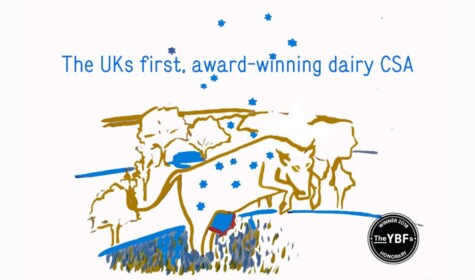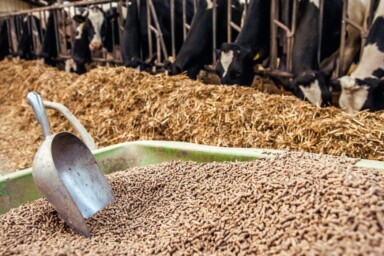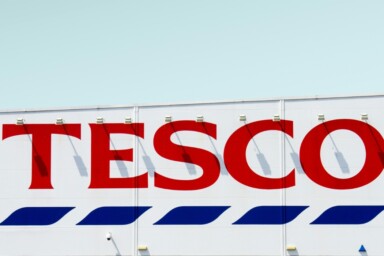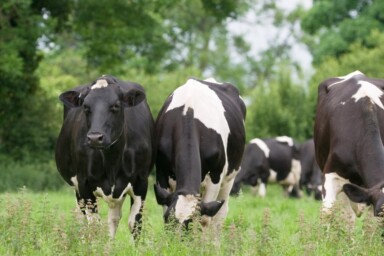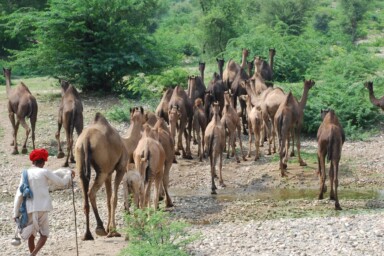Stroud Micro Dairy is an innovative award-winning community supported cooperative dairy – the first in the UK. Founded by Kees Frederiks, it launched in 2017 in a local Stroud pub, with 40 members agreeing to take a subscription. Five and a half years later the dairy continues as a cooperatively owned business, with three and a half full time equivalent employees and 18 cows.
Kees is the son of a dairy farmer, but growing up, he vowed never to go into farming, instead working in London designing and building bike parking. It was Graham Harvey’s book, The Carbon Fields, that made him change his mind. Harvey’s argument for the value of small-scale mixed rotational farming and the power to sequester carbon in our soils, opened a door. He began to see that farming could be “an opportunity to do more good, rather than less bad”. Kees moved to Stroud with his partner Alice and with the help of the Biodynamic Land Trust, they were able to secure the land needed to start their dairy business.
A cooperatively owned model of Community Supported Agriculture
Kees describes the relationship with his customers as “a kind of social insurance”. Customers buy a ‘share’ of the business, which entitles them to a quantity of milk for the year. And, as the first community owned dairy co-op in the UK, members have a say in how their food is produced and a share in the profits. This financial commitment allows the business to weather storms which they may otherwise struggle to survive. As a community supported model, they can “hang in there” in the event of a positive TB test, for example, which they say would be disastrous for a small farm, but their financial set up allows them to pull through.
The regenerative agricultural practices of the dairy
Stroud Micro Dairy is “inspired by permaculture, biodynamics, and organic farming”. They practice tall grass holistic grazing, which places an emphasis on a rest period for the grass, rather than the grazing. In this system, grass is grazed in sections by the herd, so that it has the opportunity to grow tall and root deeply. Deep roots secure the soil structure, preventing soil erosion and allowing the soil ecosystem to thrive rather than being constantly disturbed. Biodynamic preparations are applied, and the team are currently “looking to improve [their soil] with herbal lays” to increase their local biodiversity and further support the soil macro and microbiota.
The challenges of selling raw milk
On the rewards and challenges of selling raw milk in the UK, Kees explains that selling a premium product is what makes regenerative agriculture possible on their ‘micro’ scale. Selling raw milk is both “simple and hard”, Kees says. He refers to Schedule 6 in the Food Safety and Hygiene regulations for England on the sale of raw milk products which means they’re only able to sell their products on the farm gate. Whilst admitting that such restrictions on the range of sale does maintain a direct link between producer and seller, important if anything going wrong, this legislation also severely restricts the ease of sale of the products.
Financial stability in micro-dairying
Kees acknowledges that they will need to expand the business in order to reach their sales target and to ensure further financial security.
Labour is an ongoing issue. Kees explains that they have to make the most of their small scale. “You can’t dilute labour when you do things in small quantities; labour is still the biggest cost.” He said that one of the real challenges of being small scale is that the numbers are difficult to do, that “at this scale, numbers are not on your side.”
Unfortunately, there’s currently no single place to find your nearest micro dairy, but a quick google search throws up plenty of small farms bucking the trends of industrialisation. If you’d like to support Stroud Micro Dairy, why not take a look at their investment opportunities?
